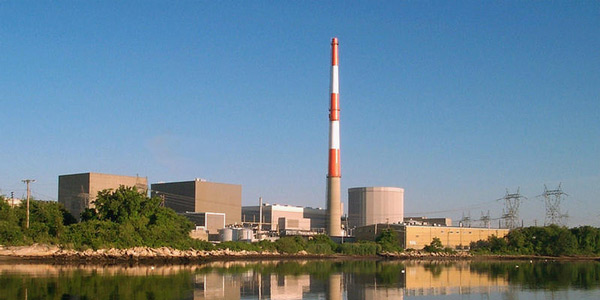The New England Power Pool Reliability Committee on Wednesday voted to recommend that ISO-NE approve pool-supported pool transmission facility (PTF) costs totaling $236.6 million for Eversource Energy projects to replace wood 115-KV structures in Connecticut ($200.3 million) and Massachusetts ($36.3 million).
Eversource maintains more than 20,000 115-kV structures in New England, and the work to replace aging wood structures with tubular steel pole structures is composed of 21 projects in Connecticut, three in Massachusetts and one cross-border project.
Inspections have indicated significant degradation and decreased load-carrying capacity of the wood structures. Eversource said that replacing the structures resolves multiple structural and hardware issues and supports safe and reliable operation.
Projects with additional scope, such as replacement of conductor and lattice tower lines, are generally presented individually.
In addition, the committee recommended RTO approval of approximately $18 million in PTF costs for Eversource to build a new control house for the Canal 345/115-kV substation in Sandwich, Mass., and elevate it above hurricane-level flooding. The station serves a large portion of Cape Cod load.
The RC also approved $7.5 million in PTF costs for Eversource to rebuild the 115-kV line from the Colony substation to Schwab Junction in Connecticut.
Attleboro Upgrade
The RC recommended the RTO approve $10.3 million in PTF costs for National Grid to replace worn-out assets at the Robinson Avenue 115-kV Substation in Attleboro, Mass., which dates from the 1960s.
National Grid said it will replace 115-kV components, including two oil circuit breakers, eight sets of disconnect switches and nine capacitor-coupled voltage transformers.
Two breakers were previously upgraded to support the new Highland Park distribution substation and were not included in the current project.
The new control house with modern protection and control systems should be completed by June 2021.
Operating Procedure Revisions
The RC voted to recommend that the Participants Committee support revision of ISO-NE Operating Procedure No. 3 (OP3) to extend the maximum duration for opportunity transmission outages from 96 hours to 108 hours.
Opportunity outages represent those that fail to meet the minimum advance notice required for planned short-term outage processing and are submitted for RTO “approval as a result of an unexpected opportunity to accomplish work that would otherwise require another outage at a less opportune time,” the RTO says.
The extra 12 hours will allow these non-impactful outages to be evaluated using the seven-day load forecast, which assumes a maximum continuous outage of five days, the RTO said.
The RC also supported revisions to OP18 to add a requirement to telemeter station frequency, identify equipment requirements, specify which requirements apply to existing and new equipment, and revise Section I to reflect current practice.
The committee also approved revisions to OP23 to provide audit requirement compliance measures for resources for which the RTO has not provided an asset ID number.
Planning Procedure Revisions
Dominion Energy is replacing the Unit 3 generator and feedwater measurement equipment at the Millstone nuclear power plant in Connecticut and in April will seek a committee vote on expanding the RTO’s interconnection limits.
Dominion representatives who wished to remain unidentified told the RC how the new equipment would allow the reactor unit to increase its output to 1,262 MW year-round, up from the current 1,225 MW in summer and 1,245 MW in winter.
The increase in output will bump the unit’s output just over ISO-NE’s interconnection limit for such resources, as defined in Planning Procedure 5-6 (PP5-6), which limits interconnection to 1,200 MW for new resources and elective transmission upgrades.
Regardless of the results of a system impact study, the RTO indicated it likely could not approve the increase in interconnection rights because of this “pretty straightforward” language, one Dominion representative said. Revising PP5-6 would allow ISO-NE to approve the uprate if no issues were found on their review of the system impact study.
Dominion proposes allowing existing capacity resources above 1,200 MW, which are “increasing output as a result of good stewardship of their resources,” to “increase their interconnection rights accordingly.”
“The new generator and new equipment we’re putting into it allows to provide some extra benefits to the grid. … You’re going from a hollow core to a solid-core rotor, so you’re going up roughly an additional 50,000 pounds on that rotor, and all that’s online and provides additional inertia, so during a voltage transient, it’s like a flywheel on your car to keep providing energy for a while,” the representatives said.
[Note: Although NEPOOL rules prohibit quoting speakers at meetings, those quoted in this article approved their remarks afterward to clarify their presentations.]
In a separate matter, the RC also approved recommending that the Participants Committee approve revisions to Planning Procedure 3 (PP3) to conform to defined terms. As part of the changes being made, the term “governance participant” was replaced with “market participant” and/or “transmission owner” to conform to Section I.3.9 of the ISO-NE Tariff.
— Michael Kuser





